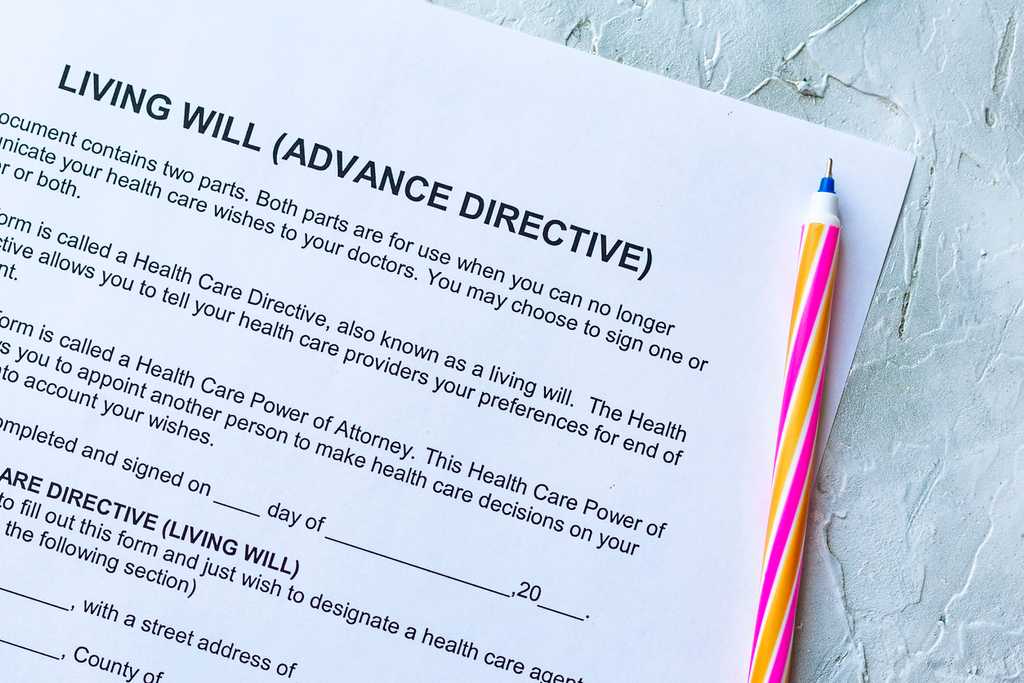When you get sick or injured, medical professionals recommend treatments that will give you the best chance at making a full recovery. As the patient, you have the full legal right to accept or reject their suggestions, like getting surgery or taking certain medications.
However, the situation is much different if you are unable to communicate when it comes time to make those decisions. If you are put on life support after a serious car accident, for example, you don’t have the ability to make medical decisions for yourself.
For this reason, creating a living will is valuable. It can make these types of unthinkable situations easier for your loved ones and your healthcare providers. Living wills are pretty simple to set up, and having one is a smart way to prepare for the future.
What is a living will?
A living will is a document that tells medical professionals what type of treatment you want if you become incapacitated and are under medical care. It can tell doctors whether you would prefer to be kept off a ventilator, whether you want to be resuscitated if you go into cardiac arrest, and what other life savings measure you would or would not want.
We should point out that a living will and a traditional will are not the same thing. A traditional will—your last will and testament—tells others what to do with your assets after you’ve died. It doesn’t contain any information about your medical treatment preferences.
Not everyone has a living will, but it can make you and your loved ones feel more at ease. For instance, families of loved ones on life support are too often asked whether to keep their relative alive under all circumstances or to let them go. If you have a living will, it provides clear directions so there is no need to make these difficult choices.
Some experts say that creating a living will can also be smart for financial decisions. Your living will can direct medical professionals to avoid expensive treatments that you or your family members would otherwise have to pay for out-of-pocket.
How do living wills work?
Doctors and healthcare providers are able to reference your living will if you become incapacitated and need immediate medical care. This document can become part of your official medical records, which makes it easy for doctors to review before they provide care.
Medical professionals often have to decide whether to give their patients ventilators, feeding tubes, or palliative care drugs. Instead of letting doctors make these decisions for you, a living will can provide guidance about what treatment you do and do not want. Additionally, a living will can include your wishes around organ and tissue donation.
It's important to note that your living will only take effect when you are unconscious and are unable to communicate and make decisions for yourself. It has no authority when you’re conscious and able to communicate. Your living will can never overrule the guidance you personally give to a health care provider, even if it’s different from what you have written in your living will.
Requirements for a living will
Each state has different rules for setting up a living will. Additionally, every state differs in what they allow you to put in a living will. For example, low-risk treatments for palliative care, such as pain medications, are typically allowed. But for more extreme measures, such as decisions to resuscitate, may be restricted. In some states, a Do Not Resuscitate (DNR) requires a separate document signed by you and your doctor.
To create a living will, you must do so voluntarily and in sound mind. You have to sign your living will in front of at least two witnesses. Some states also require the document to be notarized before it can officially take effect. An online service like Trust & Will can help you navigate the state-by-state requirements for all necessary documents.
Do you need a lawyer to get a living will?
While you don’t need a lawyer to create a living will, hiring one may make it easier to navigate the process in your state. If you decide to make your own living will, you can usually find free templates online and at lawyer’s offices, senior centers, and hospitals. Note that online forms can sometimes be outdated, so it’s best to use a hard copy form if possible.
How does a living will differ from an advance directive?
A living will is a type of advance directive. Other types of advance directives include Do Not Resuscitate orders (DNRs) and medical power of attorney (POA) documents. Oftentimes, living wills are combined with medical POA documents into what’s called an advanced health care directive. These directives provide medical professionals with the most detailed instructions for how you want to be treated when you are unconscious.
How does a living will differ from a medical power of attorney?
The main difference between a medical POA and a living will is that a medical POA appoints one person to make medical decisions on your behalf if you don’t have a living will. A medical POA, also called a health care proxy, is only meant to fill in the gaps. If your POA’s words conflict with what you have expressed in your living will, the living will is followed.
In some cases, you might decide that granting medical POA to someone makes more sense than creating a living will. Just make sure to select a medical POA who you trust, has your best interests in mind, and knows your treatment preferences in the event that you become incapacitated.
Do I need a living will?
Most experts agree that it is a good idea to set up a living will, especially if you have a serious illness or expect to undergo surgery soon. However, healthy individuals should also consider creating a living will to provide peace of mind in case the unthinkable happens.
Fortunately, there’s no risk that your living will could force you to undergo treatment that you later change your mind about. A living will can be changed at any time and for any reason. You can also revoke the living will entirely if you decide you no longer want or need it.
Making the decision to set up a living will, grant someone power of attorney, or create another advance directive is a personal one. That being said, when it comes to your health, it’s best to leave nothing to chance.
Having these documents in place means that you can get the medical treatment you want, and your family members will not be left to make difficult decisions without your input or consent.

